There seems to be little doubt among the worldwide web that the loudest fart on Earth is the hippo fart.
Except it’s not.
One video is conning the world.
Hippo farts are virtually silent, as people who have seen hippos in the wild can testify.
What? Stay with us, as all will be explained in this article.
Adding to the mystery is the incredible length of time a hippo can fart for.
And these farts could be harmful to the environment.
Here is the myth and mystery of hippo farts debunked.
The World’s Longest Fart
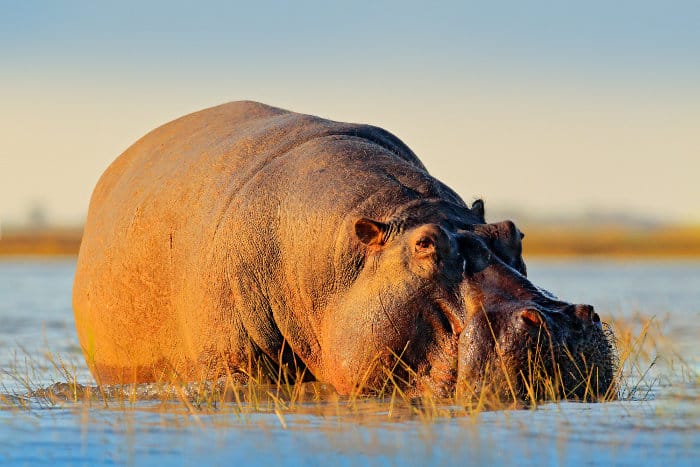
What begins as a sudden smell leaves bystanders wondering when it’s going to end.
Stretching way past the 10-second mark, hippo farts go on longer than any other African animal.
This shouldn’t come as a shock to anybody who has ever seen a hippo up close on an African safari.
It’s a creature that looks like a bulging bag of liquids and gases that could explode at any time.
It’s somewhat surprising that the hippo doesn’t let out a slight fart with every single stride it takes.
Taking on the physical form of an overfilled water balloon ready to burst, the hippo is tailor-made for letting out long, nauseous farts.
What Does a Hippo Fart Sound Like?
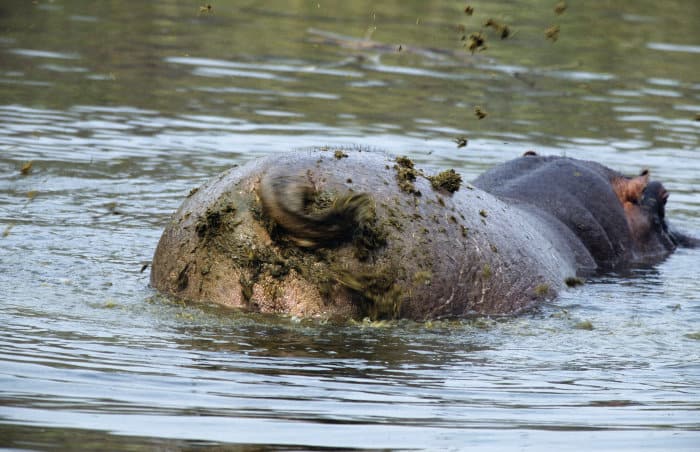
A single YouTube video with over 39 million hits has been conning the world. Here it is.
Now watch the original video and note the lack of sound effects.
Also listen out to the woman asking “did you see that?”
If the hippo really was farting loudly, surely she would have said “did you hear that?”
Hippo farts are silent. Well, almost silent.
People certainly cannot get close enough to hippos to hear the sound they emit.
Anyone within 20 metres of a hippo doesn’t need to worry about a smell or sound – they need to worry about how fast a hippo can run.
So it would be a mistake to dismiss the hippo simply as a flatulent loudly farting slob, sloping around the swamps of Africa. They are incredibly evolved animals.
And that crazy poop they can do? That’s a rather impressive way for a hippo to mark its territory.
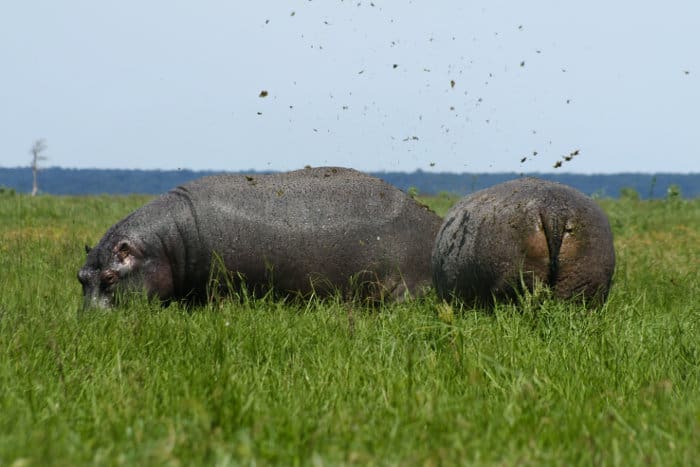
How does a hippo fart?
Many people mistakenly believe that hippos have the loudest farts.
People also mistakenly believe that hippos fart through their mouth.
This myth is explained by the biological position of the hippo’s stomach and digestive system.
Hippo stomachs are at the front of their bodies, so the theory suggests that they fart out of the front and not the back.
However, this claim has been conclusively debunked. Hippos do not fart through their mouths.
Isn’t farting through the mouth more accurately labeled burping, anyway?
Sadly, like the rest of us, the hippo has to settle for secreting all its unwanted gases through a tiny hole in its backside.
Are All Farts the Same?
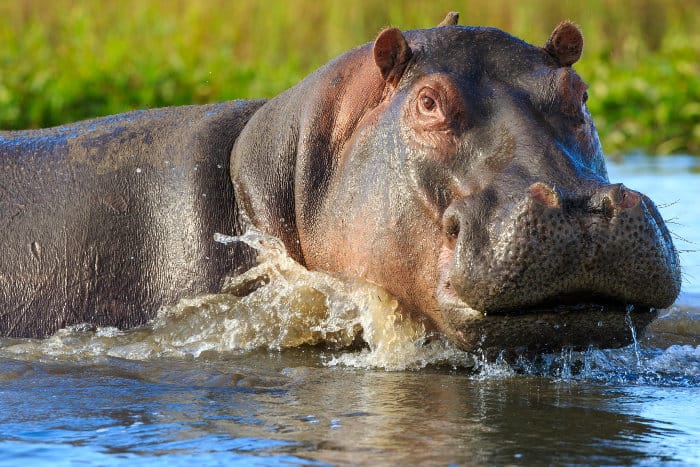
They say, ‘the silent ones are often the most deadly’. Well, they say that among schoolchildren really and this may be correct in the case of hippos.
The thunderous hippo fart has been proven to have permanent effects on the Earth’s atmosphere. It’s silent and it can be destructive!
Naturally, any slyly slid out fart is smelled with disdain by anyone who gets close. But a matter of seconds will pass before the arid aroma is a mere memory.
Distasteful as a human fart may be, it is of no further consequence once it has dissipated. In contrast, a hippo fart, once dealt and smelt, can far outstay its welcome.
The hippo’s digestive system produces and emits exceptional amounts of methane gas. To illustrate the potency of methane, it is reportedly 21 times more detrimental to our ecosystem than carbon dioxide.
Hippos have a complex three-chambered stomach that helps them digest an average of 40 kg of grass every single day. If you ate 40 kg of grass every day you can only imagine how bad your farts would smell.
Other ruminant animals, such as cows, chew their cud. That means they chew partly digested food over and over.
Hippos do not.
All their digestion takes place in the stomach, which creates an incredible volume of methane gases.
So in contrast to the myth, because hippos don’t chew their cud they don’t burp or fart out of their mouth, but save all their methane for their farts.
The effects of a hippo fart
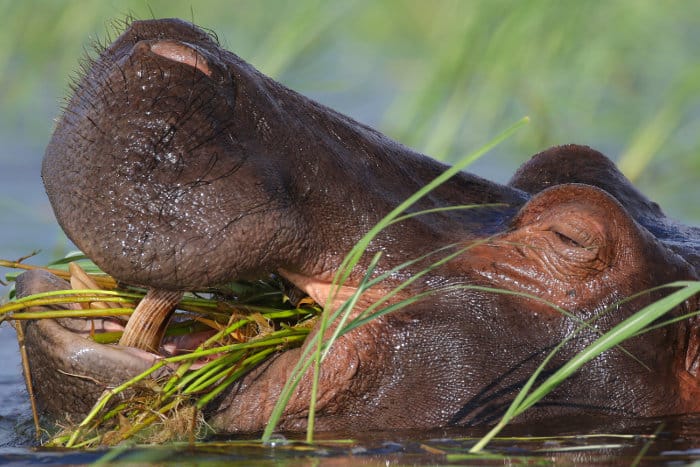
The owner of arguably the planet’s longest fart has a strong case for also being the producer of its most potent.
At its flatulent finest, the hippo can dispense a daily deluge of smelling gases.
Belonging to a group referred to as ruminant animals, which also includes Cape buffalo, hippos chew on grass then fart out methane. So every long hippo fart can potentially have an affect on climate.
Research was conducted by Sydney Zoo to see what measures could be taken to offset the considerable effects of ruminant creatures living and farting in the same vicinity. Predictably, the results were not positive.
But before you start blaming “climate change” on hippos, remember that these incredible animals have been on Earth far longer than humans.
And hippo poo plays an integral role in fertilizing the African savanna, so they ultimately help to support an incredible variety of other animals.
Hippo Farts Debunked
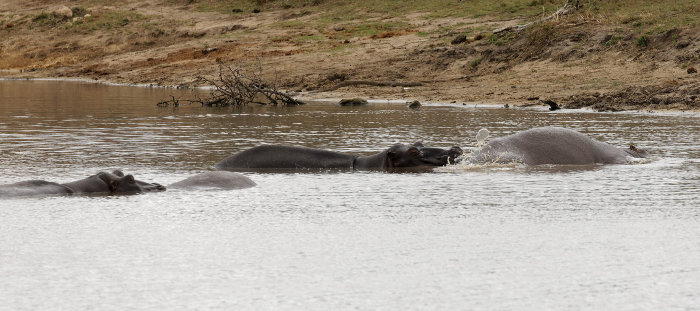
Sure, farts are funny, but like schoolchildren in a playground there is a great degree of mystery.
Hippo farts are practically silent and hopefully this article has debunked myths about these remarkable animals.
Still don’t believe us? Well, how about going on an African safari, connecting with your wild side, and finding out for yourself.
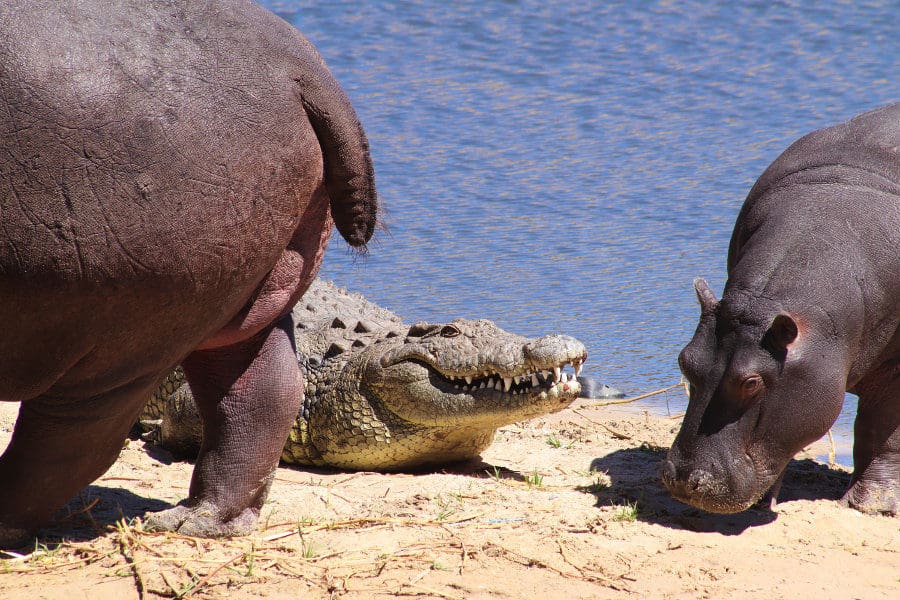
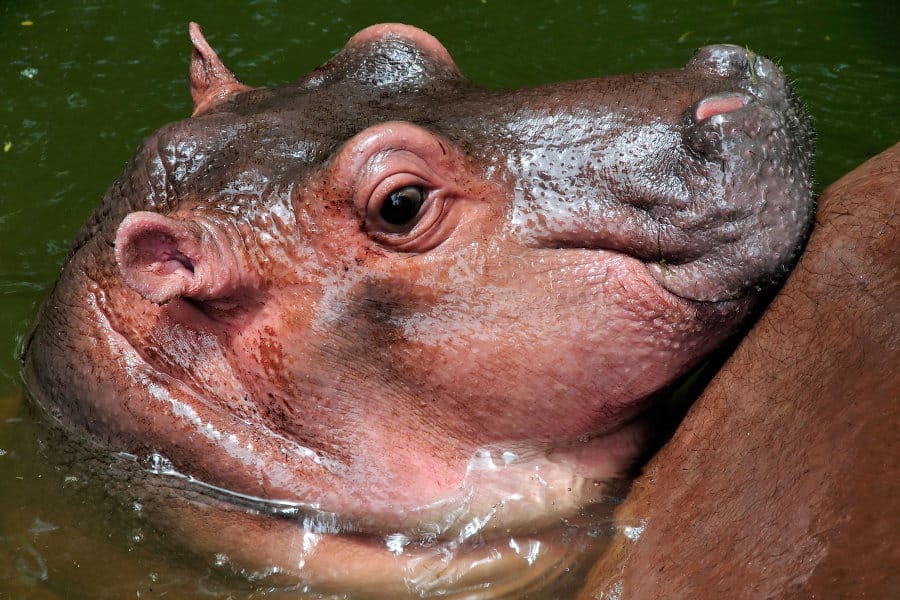

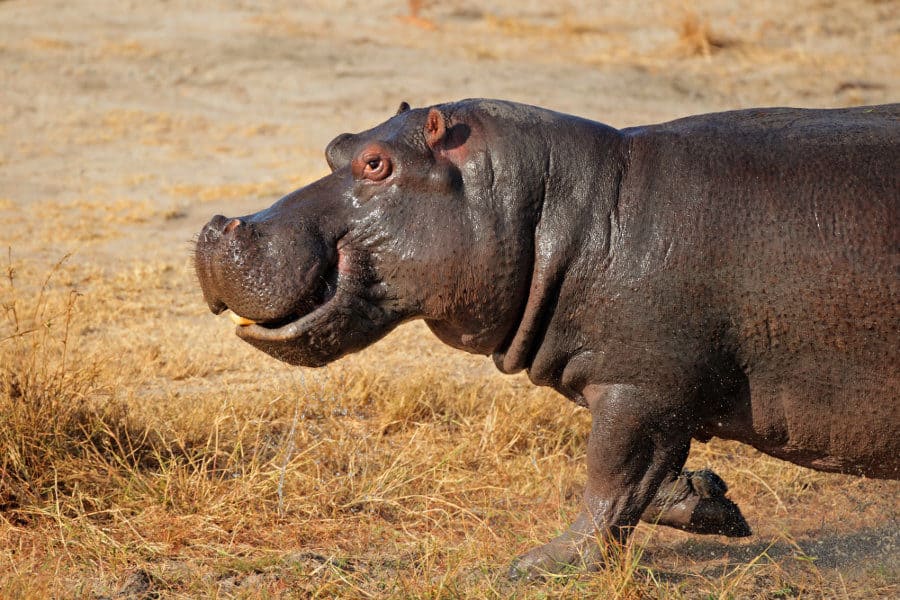
Today, while reading this, my mind got struck by a question. Were there any recorded cases of common hippos (the dominant bull) defecating on humans? Were these cases documented by zoos, safari companies, etc.? If not, I might as well want to be the first recorded case.
Cheers,
Kyle
Is this a joke? 🙂
Hi, I’m the person that asked the question. I am indeed wondering if there have been instances of hippos defecating on humans because I’m really curious. ?
It’s great to be curious, Kyle! 🙂
Unfortunately, I really don’t have an answer for you.
Good luck finding out! 😉
Cheers,
Michael
I only found this. I don’t know if there’s more though. https://www.sbnation.com/2019/10/30/20940051/hippo-pooping-australia-family-taronga-western-plains-zoo
Hi, do you know of any actual hippo farts being recorded? I was disappointed that the video in question has been doctored. Be in bubbles or a subtle flap, is there any authentic audio that exists?
Hi Andy,
Unfortunately, not that I am aware of, no.
In this case, it seems that most people on video sharing platforms are only looking for clicks (and views)…
The best way to find out the truth is definitely on a safari (you might even be lucky enough to record hard evidence)! 😉
Cheers,
Michaël
Seriously!? If anyone is causing permanent damage to earth’s atmosphere, it’s us humans, not animals because sadly we’re doing a much better job at that!, eg. greenhouse gases. Taking care of our planet is our responsibility. Animals were put here to help our planet, not hurt it. Regardless of whether or not you have hard evidence of hippos or any other animal doing permanent damage to our earth, but the damage we’re doing as humans to our planet is far worse because we’re not only slowly killing all life on our planet but ourselves included. Thanks.
Hi Travis,
Thanks for your comment.
For sure, taking care of our planet is definitely our duty. Yet we have been doing a rather poor job in that department. 🙁
As suggested in the article, hippos have been on Earth far longer than humans, playing an important role in the ecosystem. So they are definitely not to blame.
We’re definitely most responsible when it comes to pollution and the destruction of the environment.
Though in terms of the so-called “climate change” effect, I do not buy into it at all.
Why blame it on CO2 emissions when carbon dioxide only represents 0.037% of the atmosphere (of which most of it is natural, not human-induced), and a fraction of greenhouse gases?
In fact, more than 96% of the essential-to-life greenhouse effect is caused by water vapour and clouds. Other minor contributors include CO2, N2O, methane, etc.
Based on my current understanding, climate fluctuation can be directly correlated to the penetration of cosmic rays into the Earth’s atmosphere. In other words, the key is cycles of solar activity (measured by the number of sunspots).
Happy 2021! 🙂
Michael
What about elephant farts?
Great question Kalvin! 🙂
Though I have never heard one personally, it seems elephants do indeed produce sounds when farting.
How loud are they?
I’m not sure at all, but it might be worth exploring in another blog post!
After all, life shouldn’t only be about existential questions. 😉
Cheers,
Michael